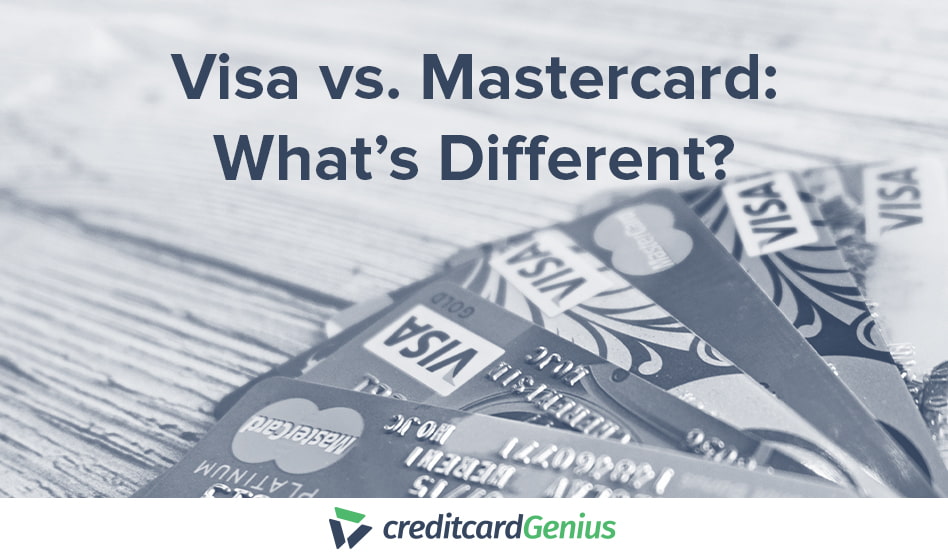If you want to truly co-sign for a credit card, bear in mind that your credit card options are extremely limited. Instead, it’s more likely you’ll find a credit card that allows you to add an authorized user.
Before you decide which route to go, read through the differences of each and find out if you’re ready to take on the responsibilities that come with sharing finances.
Key Takeaways
- Most big banks, with the exception of RBC, don’t allow people to use co-signers for credit cards.
- Instead of co-signing, you can add the person as an authorized user.
- People with poor or no credit can apply for secured credit cards, which have better approval odds.
Never miss an amazing deal again + get our bonus 250+ page eBook for FREE. Join 50,000 other Canadians who receive our weekly newsletter – learn more.
Can I co-sign a credit card?
Unfortunately, it’s harder than ever to co-sign for a credit card, since the majority of big banks and credit unions no longer allow co-signers for credit cards. RBC is the main outlier, where you can co-sign if you meet the card’s credit score and income requirements.
Still, just because you co-sign for a credit card doesn’t mean your co-applicant will automatically be approved, it just increases their chances. The card issuer still looks at both people’s credit histories, so any negative information on either report will damage your chances.
However, if your credit history is spotless and your credit score is high enough, that will likely be enough to pull them through. Keep in mind you're just as responsible for the purchases they make on their card as they are when you co-sign.
This is why you may want to look into other options, such as adding your dependent as an authorized user.
If the person you want to co-sign for has a solid credit score, they may be able to qualify for a credit card on their own, especially if they’re applying for a student credit card. They could also apply for a secured card, which has near guaranteed approval.
Co-signing a credit card vs. adding an authorized user
Besides co-signing a credit card for someone, you can also give them access to credit by adding them as an authorized user on your own credit card. That being said, there are pros and cons to both co-signing and adding an authorized user, so let's parse them out.
Co-signing pros
Of course, there are advantages to co-signing a credit card for any of your dependents:
- It could be easier to qualify for a credit card: If the other person is underage or has a negative credit history that prevents them from qualifying for a credit card on their own, co-signing a credit card for them could help them qualify on the back of your cleaner credit history and perhaps higher credit score. co-signing for them could also be the difference between qualifying based on a credit history versus having no credit history whatsoever.
- Could benefit both cardholders: If the co-signed card is managed responsibly and your dependent makes payments regularly and on time, it could benefit both your credit scores and help your dependent qualify for a credit card of their own.
- Combines credit card rewards: Both people responsible for the card may find it easier to track any rewards on the credit card. You will also be able to combine rewards earned by both cardholders if both are using the credit card.
- Potentially consolidates your bills: It combines what could be two credit card bills into one, especially if the card is used by both the user and the co-signer in a joint account style.
Co-signing cons
- Both your credit scores are at risk: If the card is managed improperly and your co-signer begins to make late payments or defaults on payments, both your credit scores can be at risk, which makes borrowing in the future even harder.
- Less control over your dependent's spending: Though you are ultimately responsible for your co-signer’s debt on a shared card if they cannot pay, you also have less control over their spending because a co-signed card isn't truly your card; you both have a claim to it.
- Difficult to separate debt on the card: Both of you are responsible for the debt on the card. The debt cannot be separated into "mine" and "yours" in the eyes of the lender. You're both responsible for it equally.
- Can damage your relationship: If your co-signer starts using the credit card irresponsibly, it can damage your relationship as they negatively affect your credit.
- Can limit your borrowing capacity when refinancing: If your debt-to-income ratio has ballooned on the debt side, it will affect both of your capacities to borrow money.
Authorized user pros
- Teaches financial responsibility: Since the other person can charge purchases to your credit card, you can teach them about how credit cards work and how to pay them off.
- Gives them some independence: You grant some financial independence when adding an authorized user, since they can use the credit card to purchase whatever they want. That said, you also lose a bit of control over their spending as well.
- Encourages conversations about money: Adding your dependent as an authorized user can be a gateway to various conversations about money. Feel free to print out the monthly statements and go over the transactions, allowing them to ask questions.
- Builds their credit history: Depending on the credit card and issuer, the purchases the other person makes on your credit card may be added to their credit history, which will help them when it's time to apply for their own credit card.
- Earns rewards from spending: If you have a rewards card, every time they make a purchase, you will earn rewards points.
- Additional perks just for having an authorized user: Some credit cards offer perks just for adding an additional user. Sometimes, the cash back percentage you can collect goes up or you get additional points for purchases just for having someone else also using your credit card. For example, the BMO eclipse Visa Infinite Card earns you 10% more bonus points on all purchases when you add an authorized user.
Authorized user cons
- You're responsible for their purchases: Since this is your card, you are responsible for the purchases of any authorized user on it. This means if they don't pay, you have to.
- They have access to your entire credit limit: There's always a risk that an authorized user can max out your credit card since they have access to your entire credit limit. Some cards, like business credit cards, allow you to set credit limits for authorized users.
- Hard to discern who is spending what: It can be difficult to separate your purchases from their purchases, especially if the card gives both of you the same credit card number. You will also have to look closely at your statement to better track purchases.
- Their spending can affect your credit score: Adding an authorized user can increase your credit utilization, which can lower your credit score, especially if you don't keep your utilization under 30%.
- Your credit usage can negatively impact them: If your finances start going downhill and you start to make late payments, default, or have to declare bankruptcy, your habits can start affecting the other person’s credit history and their ability to get credit themselves.
- You might be charged additional fees: Most cards charge additional fees for adding an authorized user, but there are also credit cards that allow you to add authorized users for free.
Questions you should ask before becoming a dependent’s credit card co-signer
Before you just go ahead and become a co-signer on your dependent's credit card, there are several things you should ask yourself to help you make a sound decision and determine whether co-signing a credit card for your child is a good idea. Here's what you should ask yourself:
- Why do they need a co-signer? Have you had an honest discussion about the person’s finances and credit score? If they’ve made some financial mistakes, find out if they’ve learned how to manage their finances going forward.
- Do you understand the risks of co-signing? Even though the other person applies too, you’re stating you’re responsible for their purchases. If they misuse the credit card, your credit score could suffer.
- Is the co-signer responsible? Do you completely trust that the person can track their spending, stick to a budget, and pay off the purchases they charge to the credit card?
- What will they use the credit card for? If they plan on using it for everyday expenses, do you trust they’ll be disciplined? If they need a card for a specific purchase, like a trip or school, are there other ways they could fund the purchase?
- How will co-signing for a credit card affect your finances? If your credit score isn’t the best or you’re challenged to handle your own finances, co-signing a credit card might add unnecessary stress.
Only add an authorized user or co-sign a credit card if you can actually cover the entire credit limit if they default and you have to. Overall, you should feel completely comfortable with the idea of co-signing before you commit to it.
Alternatives to a credit card with co-signer
If the person who needs access to a credit card doesn’t have a credit score (or theirs is pretty low), you might take a look at alternatives to credit cards that may be a better fit. For instance, if you’re trying to help a student or young adult, you may be able to find a credit card tailored to people with no credit score.
There may actually be a better product designed to help them build a credit score, learn how to manage their finances, or get access to credit. Check out these alternatives before submitting a credit card application:
| Credit builder account | Line of credit | Student credit card | Prepaid credit card | Secured credit card | Visa/Mastercard debit | Joint credit card/authorized user | |
|---|---|---|---|---|---|---|---|
| Requires the applicant to have good credit? | ❌ | ✅ | ❌ | ❌ | ❌ | ❌ | ❌/✅ |
| Does it build credit? | ✅ | ✅ | ✅ | ❌ | ✅ | ❌ | ✅ |
| Does it teach financial responsibility? | ✅ | ✅ | ✅ | ✅ | ✅ | ✅ | ✅ |
| Does it offer flexible spending options? | ❌ | ✅ | ✅ | ✅ | ✅ | ✅ | ✅ |
| Does it offer rewards on spending? | ❌ | ❌ | ❌/✅ | ✅ | ✅ | ❌ | ✅ |
Best credit cards with co-signers or authorized users in Canada
If you’re the one who needs a credit card and you won’t qualify for one without a co-signer, check out these credit cards or look at ones that allow you to be added as an authorized user. Note that most RBC credit cards allow you to co-sign, but we’ve just listed our favourites:
| Credit Card | Co-sign or authorized user | Credit Card Offer | Rewards | Annual Fee and Income Requirements | Apply Now |
|---|---|---|---|---|---|
| RBC Avion Visa Infinite | Co-sign and authorized user | 55,000 bonus points (terms) | * 1.25 points per $1 spent on travel * 1 point per $1 spent on all other purchases | * $120 *$60,000 personal or $100,000 household | Apply Now |
| RBC ION Visa | Co-sign and authorized user | 11,000 Avion points (terms) | * 1.5 points per $1 spent on groceries, daily transit, rideshares, EV charging, streaming, digital gaming, and subscriptions1 * 1 point per $1 spent on all other purchases | * $0 * None | Apply Now |
| Tangerine Money-Back Credit Card | Authorized user |  $140 GC Boost + 10% extra cash back for the first 2 months (terms) $140 GC Boost + 10% extra cash back for the first 2 months (terms) | * 2% cash back on purchases in up to 3 Money-Back Categories * 0.5% cash back on all other purchases | * $0 * $12,000 | Apply Now |
| BMO CashBack Mastercard for students | Authorized user |  $20 GeniusCash + 5% cash back for the first 3 months (terms) $20 GeniusCash + 5% cash back for the first 3 months (terms) | * 3% cash back on groceries (up to $500 per month) * 1% cash back on recurring bill payments (up to $500 per month) * 0.5% cash back on all other purchases | * $0 * None | Apply Now |
| Wealthsimple Prepaid Mastercard | No, but has low eligibility requirements | None | * None | * $0 * None | Apply Now |
| Secured Tims Mastercard | No, but has low eligibility requirements | $20 Tims digital gift card (terms) | * 2 points per $1 spent at Tim Hortons * 2 points per $1 spent on gas, groceries, EV charging, transit, taxis, rideshares * 1 point per $4 spent everywhere else | * $0 * None | Apply Now |
| CIBC Dividend Visa Infinite Card | Authorized user | 10% cash back for the first 4 months, first year annual fee rebate (terms) | * 4%† cash back on eligible gas, EV charging, and groceries * 2%† cash back on eligible restaurants, transportation, and recurring bills/payments * 1%† cash back on all other purchases | * $120 * $60,000 personal or $100,000 household | Apply Now |
FAQ
Can you co-sign for a credit card in Canada?
Not many banks or financial institutions allow you to co-sign for a credit card, but RBC does allow it for some credit cards. However, it’s a big commitment and you might decide to add them as an authorized user instead.
Can co-signing hurt your credit?
Co-signing for a credit card can damage your credit if the person who you’re co-signing for is financially irresponsible with their card. For instance, your score could be hurt if they go over the card’s limit.
What is the risk of having a co-signer on your credit card?
The risk when co-signing a credit card can be considerable, since you’re completely responsible for the other person’s credit card use (and all the charges they make to the account). Your credit score is also at risk.
Can you build credit by co-signing?
Since you are jointly responsible for the credit card account, using the card responsibly can build your credit, but only if both of you follow the card issuer’s terms and stay on top of the payments.
What are the best credit cards for co-signing?
If you truly want to co-sign for a card rather than add someone as an authorized user, you’ll need to select an RBC credit card, like the RBC Avion Visa Infinite or RBC ION Visa.
creditcardGenius is the only tool that compares 126+ features of 228 Canadian credit cards using math-based ratings and rankings that respond to your needs, instantly. Take our quiz and see which of Canada's 228 cards is for you.







 GC:
GC: 


































Comments
Leave a comment
Required fields are marked with *. Your email address will not be published.